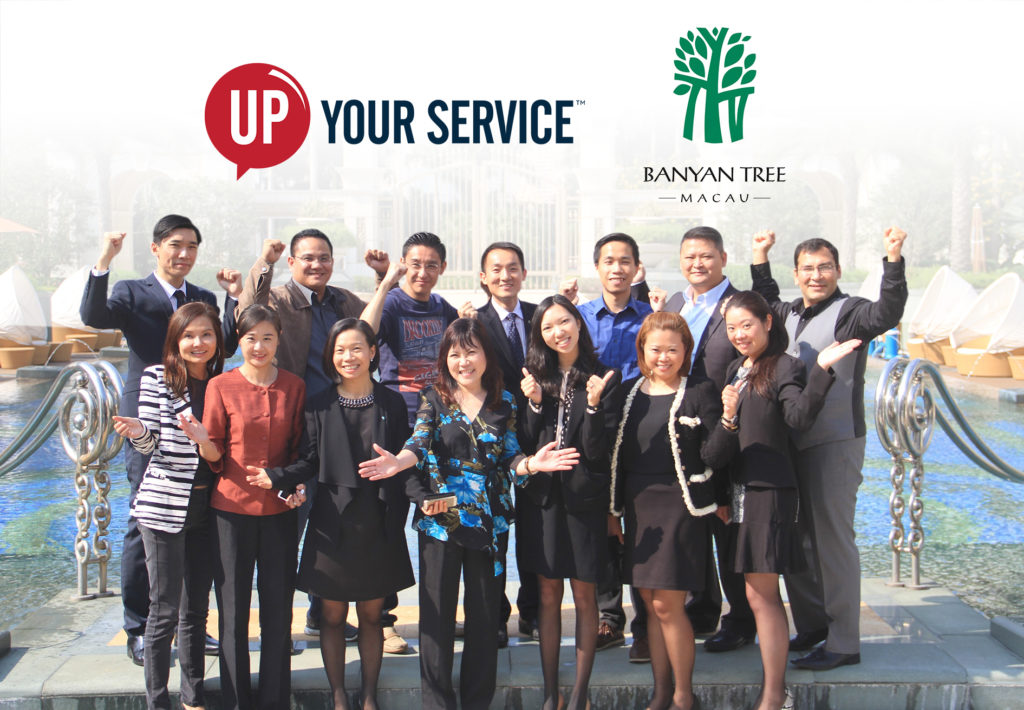
I recently stayed at the Banyan Tree resort in Macau. This was my first time staying with the 5-star Banyan Tree group. All I knew was that the Macau property is a high-rise urban resort in the city with modern living, unlike the other Banyan Tree resorts built with nature-filled living and relaxation. I expected to indulge and be pampered with service excellence – as I would in any other hotel of equal standing.
When I arrived at check-in, the staff member mentioned my name in a tone and style that made me like feel they had been waiting just for me. That felt good, especially after a long flight and drive to reach the destination.
I decided to stay in the first night and ordered dinner from room service, including the mushroom soup. The soup came with a clear stock and cooked mushrooms, but it tasted a bit bland to me. When the room service staff asked how I was enjoying the food, I was honest and said, “It was, um, different than I expected. I think it may need more mushrooms.” The staff member happily replied, ‘Thank you! I will inform the chef.”
On the second night I ordered room service again, and the chef surprised me with the same soup, but with a larger portion of tasty mushrooms added in. This time, when the room service staff asked me for feedback, I shared my own favorite recipe for mushroom soup. Right away she said, ‘Ah, now I understand. You want the creamy type of soup.” And when she returned to collect my room service tray, she said with a twinkle in her eye, “The chef is going to make mushroom soup for you the way you like it tomorrow!” We both laughed out loud.
And then she said, “And Miss Jocelyn, we will take the soup charge off your bill.” I was awe-struck! What were they doing! Had I gotten them into trouble with the management? After all, the chef was not wrong – the mistake was mine. I ordered the mushroom soup thinking it was ‘cream of mushroom’.
I was struck by their repeated efforts to make the soup just right for me. And clearly they were having fun pouring their energy into the soup, and into my experience as their guest. I was touched that the chef cared about me – one out of 256 guests staying in-house that night.
At Uplifting Service, we define service as “taking action to create value for someone else.” This is precisely what the chef did when he prepared my soup over and over again to make sure it was what I desired, not only what was on the menu.
But isn’t it a challenge to define what real value is when different customers want different things – like cream of mushroom soup? True, this is not always easy, but we have a toolset that can help.
We use a framework called ‘The Big Picture’ to illustrate four key categories in the experience your customer values. These four categories are Primary Product, Delivery Systems, Service Mindset, and Ongoing Relationship.
In this story, mushroom soup was the Primary Product. The Delivery System was the in-room menu I ordered from, the telephone I used to place my order, and the room service tray used to bring the soup up to my room, and the bowl and cutlery provided for me to enjoy my soup.
Service Mindset was the attitude and personality demonstrated by the staff, including the way I was greeted politely, asked for feedback, and the positive attitude with which my feedback was relayed to the chef. Even though the chef was behind the scenes, I could sense a real “Can Do!” service mindset coming from the kitchen.
The value of an Ongoing Relationship was created as the chef and serving staff persisted in their efforts to understand me, connect with me, and care for me. I started to feel a connection on the second night because of the effort they demonstrated on the first. Banyan Tree locked in the value of Ongoing Relationship when they said to me during check-out “We understand you had an opportunity to work with our chef during your stay. He said to thank you, and to promise that your cream of mushroom soup would be waiting to welcome you back when you return.”
To create a valued experience for your customer, all four categories can contribute. For example, if your soup (Primary Product) is good and your serving staff friendly (Service Mindset), but the soup arrives late (Delivery Systems) and feedback is not acted upon (Ongoing Relationship), then you may have good soup, but not deliver a positive customer experience.
Do you see how this works? Can you taste it? And how was the soup on my third night in Macau? For that information you will need to write to me to find out!



